insects
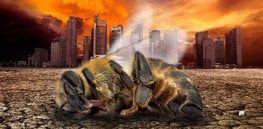
Are we facing an ‘Insect Apocalypse’ caused by ‘intensive, industrial’ farming and agricultural chemicals? The media say yes; Science says ‘no’
The media call it the “Insect Apocalypse”. In the past few years, the phrase has become an accepted truth of ...
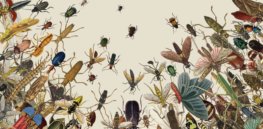
Disaster interrupted: Which farming system better preserves insect populations: Organic or conventional?
A three-year run of fragmentary Armageddon-like studies had primed the journalism pumps and settled the media framing about the future ...
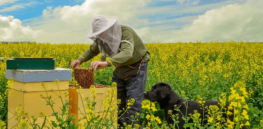
Insects are disappearing from UK farms. Why, and what can be done?
Insect populations are declining worldwide at a rate of almost 1% per year. This decline is alarming. Insects play a ...

Greenwashing or greening agriculture? Food companies developing efforts to prevent carbon in soil from leaking into the atmosphere
Jason Johnson, Stonyfield Organic’s farmer relationship manager, fires up the AgriCORE soil sampling tool in a pasture with sweeping views ...
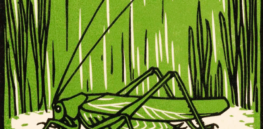
Grasshoppers under siege: Here’s how climate change depletes insect populations and threatens the global food supply
It’s tough out there for a hungry grasshopper on the Kansas prairie. Oh, there’s plenty of grass to eat, but ...
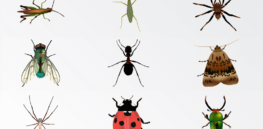
Oxford researchers: German study warning of insect declines lacks robust evidence
Sampling in Germany, Seibold et al. present an interesting and impressive study of arthropods in grassland vegetation and those in ...

3 things we should do to preserve insect biodiversity
Insects make up the bulk of terrestrial diversity. Reports of insect declines, best documented in Europe and North America, suggest ...
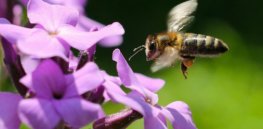
Viewpoint: How ‘insect Armageddon’ stories erode public trust in science
When I was growing up in Tulsa, Oklahoma, long before we spent our evenings drawn to the soft glow of ...
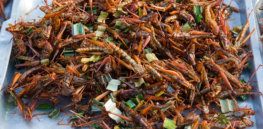
‘Edible insects’ boost food sustainability, but will consumers eat BBQ-flavored bugs?
There is an increasing range of insect-based products, such as whole/flour, snacks, health bars, pasta, pasta sauce and burgers. Edible ...
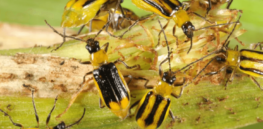
Podcast: 7 modern pest control tools that protect our food from hungry bugs
Need to manage a pest problem? Luckily, there are many ways to do that! From physical to biological and chemical ...
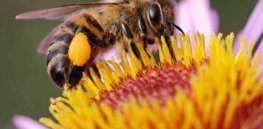
UK experiencing ‘widespread’ decline of insect pollinators, new study claims
Great Britain is in great trouble....it’s running out of pollinators. The Center for Ecology & Hydrology measured the presence of ...
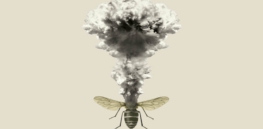
Latest ecological fake news scare: Like the ‘honeybee armageddon’ narrative, pesticide-driven ‘insect-pocalypse’ claim is collapsing
The 'bee-pocalypse' was an exaggerated fiction grounded in genuine concerns. The 'insect-pocalypse' is more of the same ...
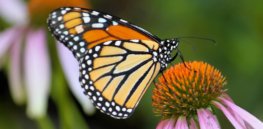
Viewpoint: Here’s why we don’t have to worry about a world without insects
Recent headlines about the coming collapse of the insect world are another case of extrapolation from inadequate data ...
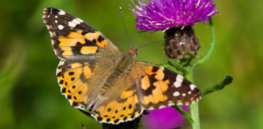
Modern farming isn’t driving insect declines, agricultural industry says
A new piece of research, carried out by Francisco Sánchez-Bayo and Kris Wyckhuys, reviewed 73 historical reports of insect declines from ...

Intensive agriculture driving insects towards extinction, threatening “catastrophic collapse of nature’s ecosystems,” study claims
The world’s insects are hurtling down the path to extinction, threatening a “catastrophic collapse of nature’s ecosystems,” according to the ...
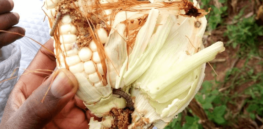
Plants have a sense of smell—can we harness it to fight pests, improve crop quality?
Plants don't need noses to smell. The ability is in their genes. Researchers at the University of Tokyo have discovered ...
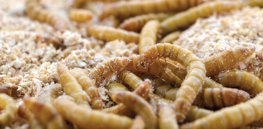
Talking Biotech: How insects could make our food supply more sustainable
Producing feed for animals we eat has led to overfishing and other environmental challenges. Feeding our livestock insects might solve ...
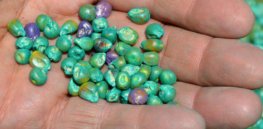
Did Canada overestimate the risks of neonicotinoid pesticides?
On Aug. 16, Health Canada’s Pest Management Regulatory Agency proposed to ban all outdoor uses of [the neonicotinoids] clothianidin and ...

